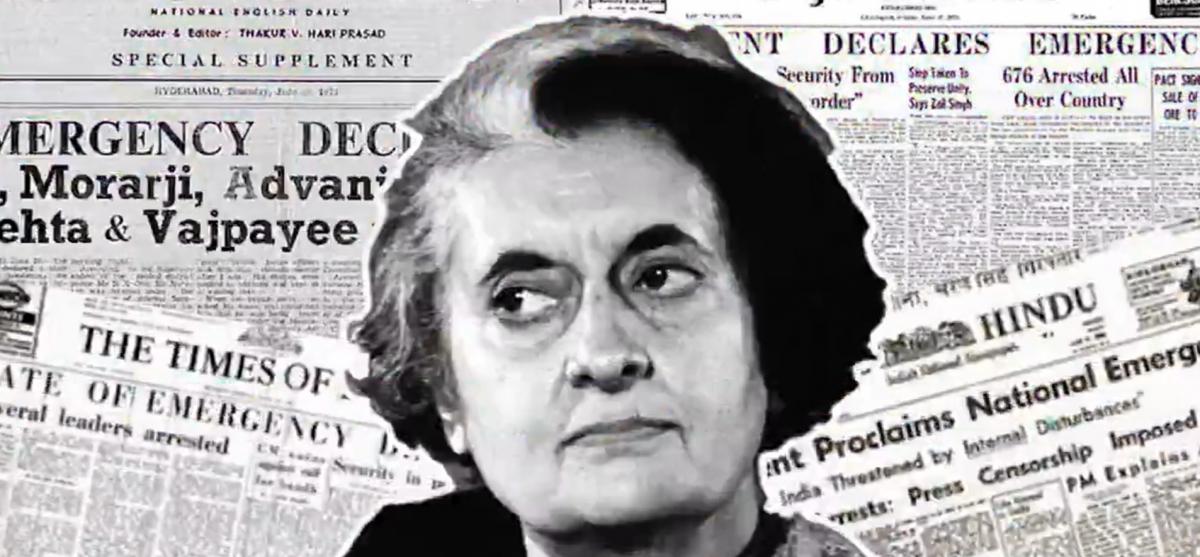India Remembers: 50 Years Since the EmergencyIANS As India marks the 50th anniversary of the Emergency declared on June 25, 1975, the nation reflects on a period often described as one of the darkest in its democratic history. This 21-month era was characterized by severe state repression, political arrests, and a significant curtailment of civil liberties, leaving a lasting impact on the country’s political landscape. Former parliamentarians, leaders, and officials have come forward to share their harrowing experiences, providing a vivid account of the challenges faced during this tumultuous time. Anand Mohan, a former Member of Parliament from Bihar, recalls the Emergency as a “dark chapter” in Indian democracy. He reflects on the decision made by then-Prime Minister Indira Gandhi, who, despite her reputation as the “Iron Lady,” committed what he describes as a historic blunder by declaring the Emergency. This drastic measure was taken in response to the Allahabad High Court’s decision to invalidate her election, a ruling that left her desperate to maintain her hold on power. “The entire country turned into a jail,” Mohan states, emphasizing the widespread impact of the Emergency. Surendra Pratap Singh, a former Member of the Legislative Assembly from Jaunpur, Uttar Pradesh, spent 19 months in jail under the Maintenance of Internal Security Act (MISA). He recounts the events of June 25, 1975, when Indira Gandhi imposed the Emergency to safeguard her position after her election was nullified. “Lakhs were thrown into jails. Even newspapers published blacked-out front pages. Students and youth were arrested overnight,” Singh recalls. As a student union leader, he was initially imprisoned in Jaunpur jail before being transferred to Naini jail in Allahabad. Recollections of Resistance P.V. Krishna Bhat, Chancellor of Central University, Odisha, provides insight into the anti-Emergency movement led by Jayaprakash Narayan, a prominent political leader and activist. Bhat recalls how the movement began in Gujarat, then spread to Bihar, and eventually covered the entire country. “When the Emergency was imposed, JP gave the call,” he says, highlighting the widespread resistance to the government’s actions. Bhat himself evaded arrest for months before finally surrendering and spending 21 months in jail. Krishna Shetty, a former Chairperson of the Lalit Kala Akademi and a student leader at the time, recounts the challenges faced by activists during the Emergency. He describes how activism was considered a sin, leading to his imprisonment for opposing the government’s order. “Indira Gandhi panicked. Senior leaders were arrested overnight,” Shetty recalls. He was jailed alongside L.K. Advani in Bellary and Bangalore, where they managed to smuggle a camera and a transistor into prison. “The images of the Emergency that you see today, many were taken by me. We were tortured, but we stood firm,” he adds. Economic thinker Swaminathan Gurumurthy offers a critical perspective on the Congress party’s role during the Emergency. He argues that the party has never apologized for its actions during this period and calls for accountability. “Rahul Gandhi must realize that the Constitution he holds was dismantled by his grandmother and reclaimed by the people,” Gurumurthy asserts. He emphasizes the need for the Congress party to acknowledge its past actions and apologize for the Emergency, a gesture that has yet to occur. The Emergency period in India is often compared to other historical events where governments have curtailed civil liberties in the name of maintaining order. One such example is the internment of Japanese Americans during World War II in the United States. In 1942, following the attack on Pearl Harbor, President Franklin D. Roosevelt signed Executive Order 9066, which authorized the forced relocation and internment of over 120,000 Japanese Americans. This decision was driven by fear and suspicion, much like the Emergency in India, and resulted in significant violations of civil rights. Another historical parallel can be drawn with the martial law period in the Philippines under President Ferdinand Marcos. In 1972, Marcos declared martial law, citing the need to suppress communist insurgency and maintain order. This period was marked by widespread human rights abuses, political repression, and the suppression of free speech, similar to the conditions experienced during the Emergency in India. The Emergency in India also had a profound impact on the country’s judiciary and political landscape. The judiciary, which had been seen as a bulwark against executive overreach, faced significant challenges during this period. The doctrine of judicial primacy, which emphasizes the independence of the judiciary in the appointment process, was consolidated in response to the Emergency. This doctrine assumed that the judiciary, if left to itself, would produce competent and independent courts, a belief that was tested during the Emergency. The political landscape in India was also reshaped by the Emergency. The rise of religious nationalism, as seen in the Bharatiya Janata Party’s (BJP) electoral resurgence, can be traced back to the political dynamics of this period. The BJP’s alternative nationalism, based on the premise that Indian culture is synonymous with Hindu culture, has gained prominence in recent years. This shift in political ideology reflects the long-term impact of the Emergency on India’s political discourse. In conclusion, the Emergency period in India remains a significant event in the country’s history, serving as a reminder of the fragility of democratic institutions and the importance of safeguarding civil liberties. The recollections of those who lived through this period provide valuable insights into the challenges faced by the nation and the resilience of its people. As India marks the 50th anniversary of the Emergency, it is an opportunity to reflect on the lessons learned and ensure that such a period of repression is never repeated. Related 50 years of Emergency: BJP hits out at Congress, hails PM Modi’s legacy of governance Op Sindoor: All steps taken to ensure civilian safety; teams deployed at key installations, says K’taka HM PM Modi pays tributes to Rajiv Gandhi on his 34th death anniversary Karnataka to be first state where everyone has land records: Rahul Gandhi
